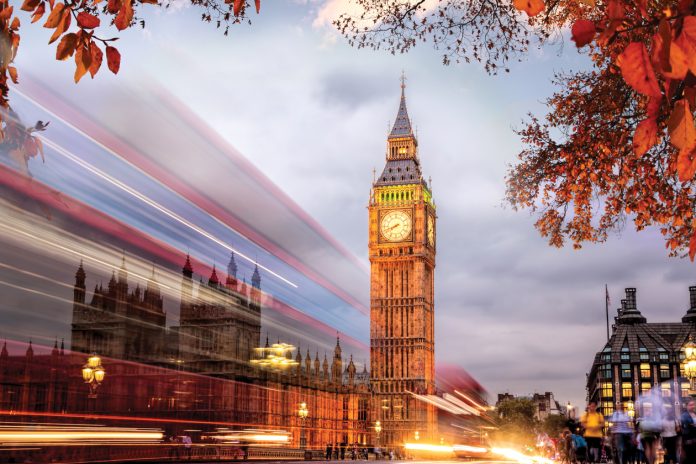Approaching this Budget, there is a feeling far closer to the apprehension felt before a dentist’s appointment than the happy anticipation of a Bingo Club visit. There are a number of reasons for this.
First, the general indicators of the UK economic and fiscal environment do not make for happy reading. The tax burden is already at a historic high and projected to rise further. Experts warn that government spending will need to increase further to make necessary long-term investments in infrastructure, health and defence. The national debt is already high, while economic growth remains low.
Secondly, although the Labour Party manifesto promised limited tax rises, the tone has changed since the election. In particular, on Legislation Day in July, Chancellor Rachel Reeves revealed a so-called “£22 billion black hole” in the public finances. Both Lords of the Treasury (being the Prime Minister and the Chancellor) have warned that the Budget is “going to be painful” and involve “difficult decisions”. With measures already announced including the controversial means testing of the Winter Fuel Payment, there will be a political need to show that the Budget has exhausted all more palatable options for raising money.
Thirdly, in a typical election cycle, the first Budget is the one where governments normally raise taxes, knowing that they have the rest of the Parliament to spend the money (hopefully wisely) and aim to get a return that outweighs the memories of the tax rise on election day.
However, the gloom may be tempered slightly. The Chancellor made it clear that, in her view, boosting economic growth, not tax rises, is the key solution to the UK’s economic problems. As with her speech at September’s Labour Party Conference, she will be looking to give UK businesses and consumers reasons to be optimistic about the future, to encourage them to continue to spend and invest. And there are some positive economic indicators. Inflation is close to target, and the Bank of England is starting to lower interest rates.
How might the Budget impact the Bingo industry?
In terms of taxation, the Bingo industry makes a valuable economic contribution to the Chanceller’s coffers, including directly supplying around £150 million annually in taxes. This is in addition to the wider economic value that it generates through the people it employs, and the businesses and communities it supports. Around half of the tax contribution comes from the usual sector-agnostic taxes, including corporation tax, income tax, National Insurance contributions (NIC), value added tax (VAT) and business rates, with the other half coming from the sector specific taxes of Bingo duty and machine games duty.
On the sector-agnostic side, Labour has ruled out, both in its election manifesto and subsequent leadership comments, increases in the rates of income tax, NIC and VAT, while the corporation tax rate will remain capped at 25%. There is currently no indication that the Chancellor will look to reverse these commitments, with the recent cuts in employee NICs by the previous Conservative Government being protected. Of course, the focus on rates leaves open the possibility of other changes, such as to the tax base, but the government rhetoric has focused on not raising taxes “on working people” and some of these other changes might infringe on those statements.
Business rates is one area where the Government has promised reform, with its manifesto promising to replace the system in a revenue-neutral way. It also said that a new system would level the playing field between the high street and online giants, better incentivise investment, and tackle empty properties. Of course, the net effect of any changes on Bingo will depend on what happens to the COVID-related 75% exemption (capped at £110k per business) for retail, hospitality and leisure which runs out at the end of March next year.
Betting and gaming duties are forecast to raise a combined £3.6 billion in 2024-25. Labour has made no commitments here, so in theory all options are available to the Chancellor. From an Exchequer perspective, Bingo duty is a very small element of this (raising around £22 million), and therefore unlikely to be a target. Indeed, the small cost could mean that there is even a chance the Chancellor might choose to go in the other direction and take the duty down to nil, if she is looking for ‘good news’.
Of greater concern is the risk that machine games duty (which is twice the size of Bingo duty) might increase, with the focus not on Bingo but the wider gaming machine environment.
The indirect impact
Of course, Budget watchers will be thinking not just about those taxes affecting the Bingo Clubs themselves, but also announcements that will impact the wider economy and the industry’s customers. Energy prices are expected to increase further, coinciding with the drop in temperature and, alongside the means testing of the Winter Fuel Payment already announced, funds available for leisure are likely to feel the strain. A Budget that further dampens consumer sentiment could lead to decreased discretionary spending and fewer social outings to Bingo halls.
But to end on a positive note, the Budget is expected to include a business tax roadmap, intended to provide long term certainty about the direction of business taxes in the future. This will include the commitment to full expensing and hopefully will mean that future Budgets over the next five years are less of a surprise.
In a nutshell, there are reasons to believe that Bingo may be less affected than others in what is likely to be a tough Budget. The Bingo Association has continued to proactively engage with the new Government, making the case for protecting the Bingo industry, ensuring those making the decisions are aware of the Bingo industry’s positive contribution, both economically and to the social fabric of the communities it serves. And though we will have to wait and see what the Budget brings, there are indicators that the message is being heard.
As we await the Budget’s details, there is cautious optimism that the Bingo industry may weather the storm, with the promise of a brighter spring on the horizon.
Chris Sanger is Tax Policy Leader at EY and Steven Effingham Tax Policy Director at EY. The EY tax policy network has advisers in more than 85 countries and advises clients on how to effect policy change directly and through strategically engaging policy makers. www.ey.com















